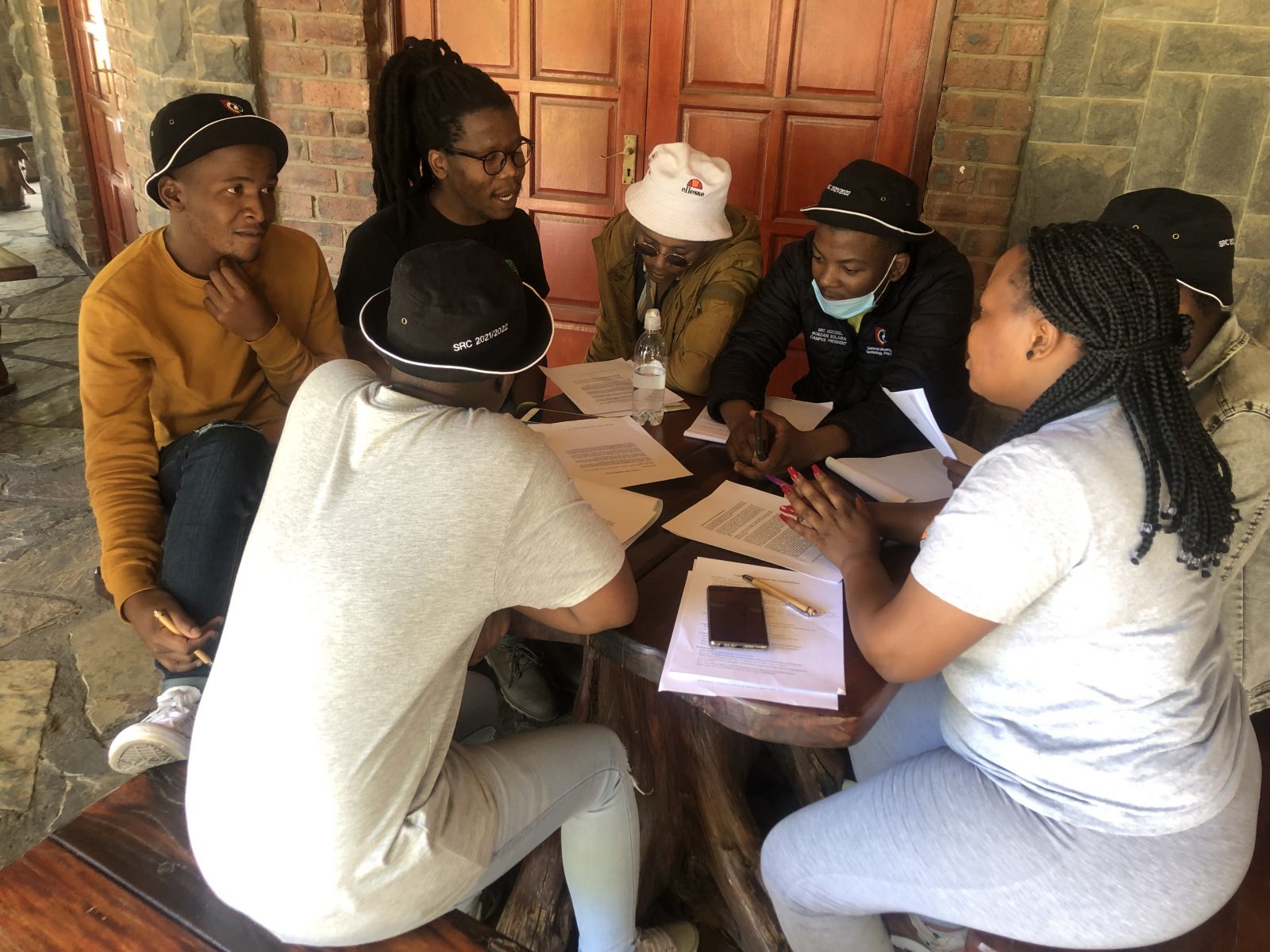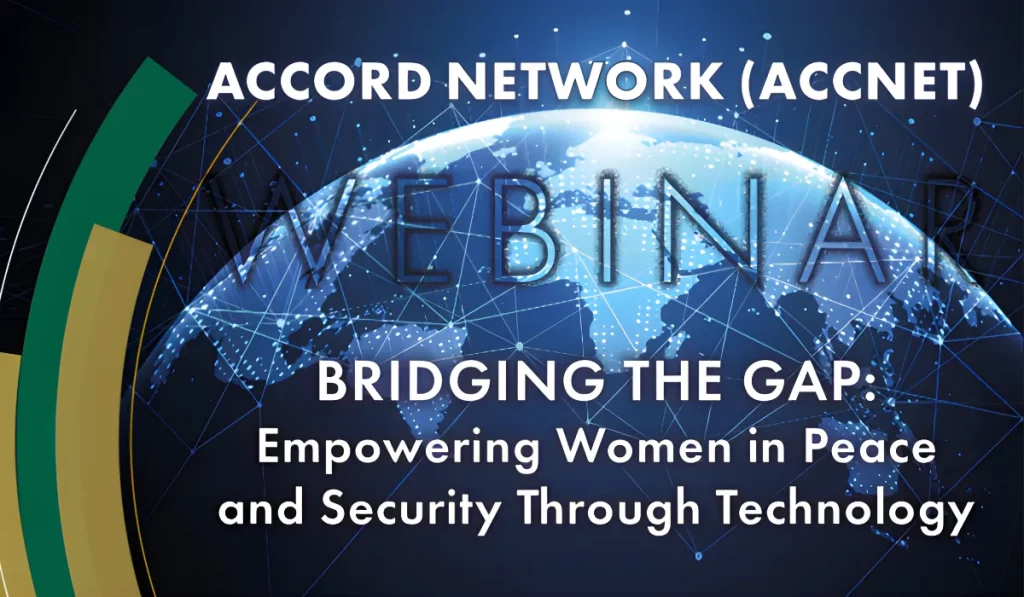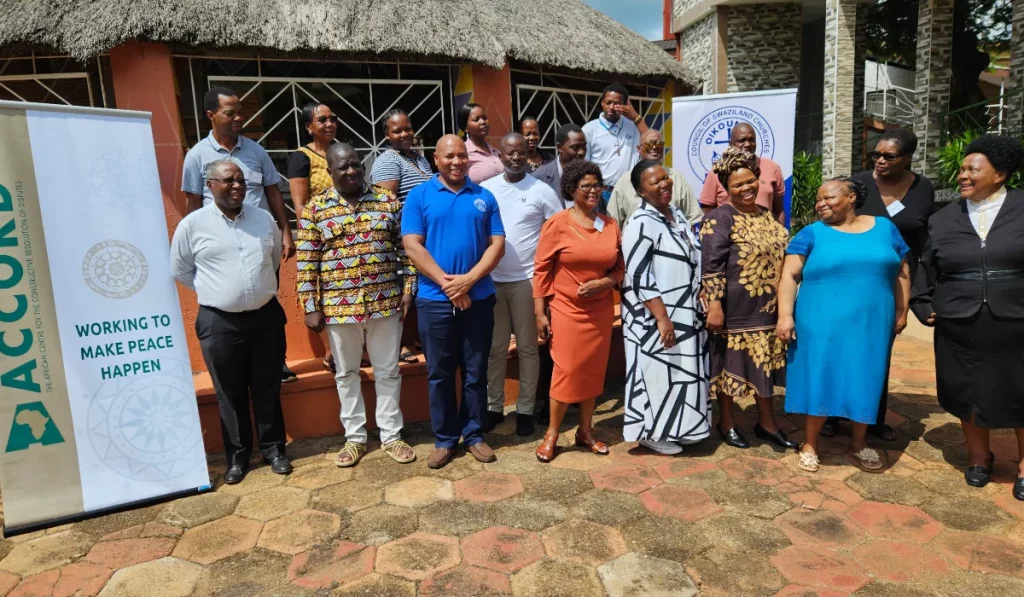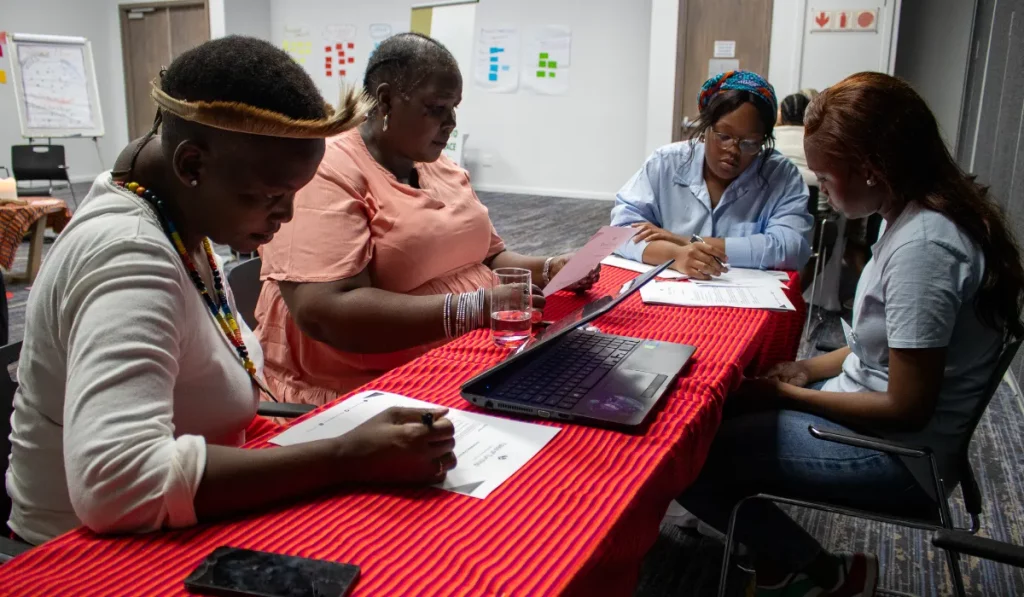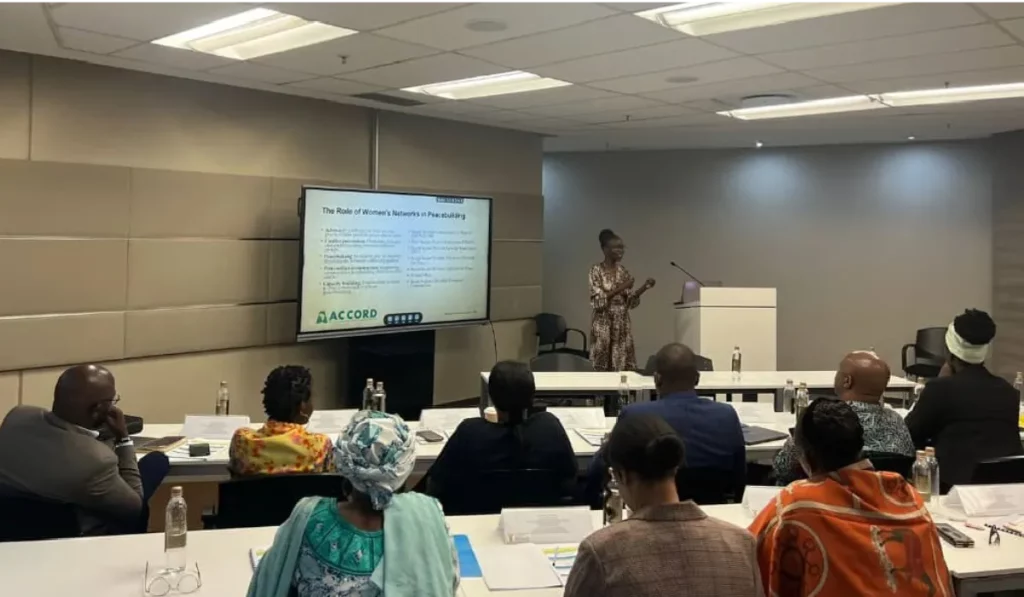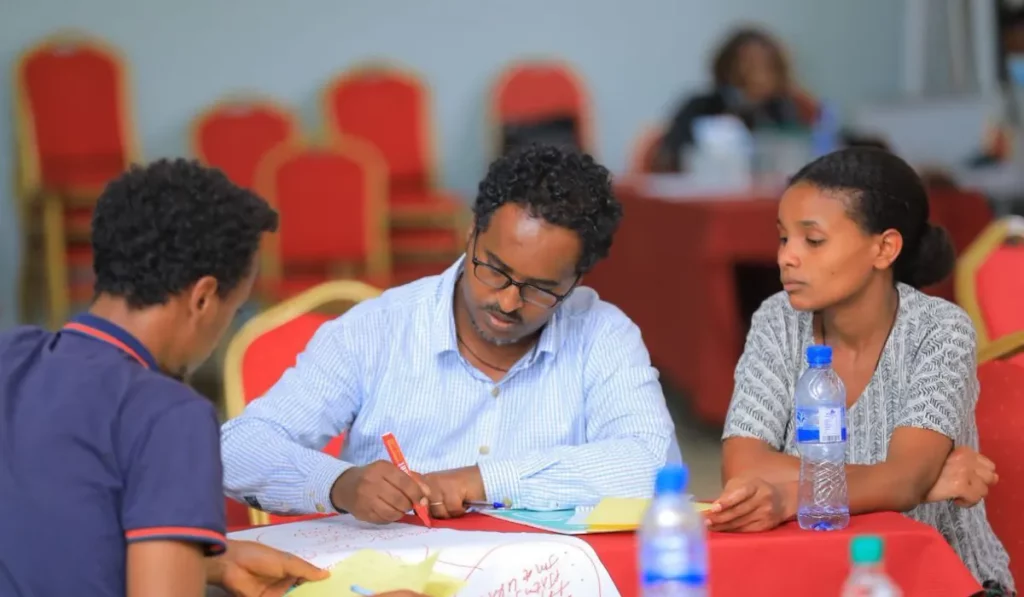Historically, university campuses and places of higher learning have been a contested terrain in South Africa. The “Rhodes Must Fall” and “Fees Must Fall” campaigns are recent, high profile and widely supported campaigns reflecting a desire and pressure for transformation. Such struggles, which can often be complicated by national and local politics, often result in intensifying tensions and direct confrontations between student groups and management. Recognising that academic spaces may potentially be a space of contestation, ACCORD convened an Introductory Conflict Management Training for the Central University of Technology’s (CUT) Student Representative Councils (SRC) from 3 to 4 November 2021.
Philip Visser, ACCORD’s Manager of Applied Knowledge and Learning, along with Jerome Sachane, former Senior Executive at ACCORD, co-led the training. The training request came from the SRCs on both CUT’s Welkom and Bloemfontein campuses. They requested the training to help them create a constructive form of engagement between their SRC body and management.
The training content focused on basic negotiation skills to enable the SRCs to improve their ability to engage more constructively and effectively with their institution’s management, and therefore improve their functioning as a student leadership structure. The SRC used the training space to articulate their challenges, as well as the areas in which they hoped to effect change. The platform therefore helped to build the SRCs cohesion, while building understanding of the role of the SRC in balancing activism for change with the ability to resolve conflicts and disputes with management.
Youth are continuously being recognised as key stakeholders positioned to prevent, mitigate and resolve conflict at a local level, as such ACCORD supports youth development initiatives as part of its ongoing strategy in building local and national capacities for peace.

